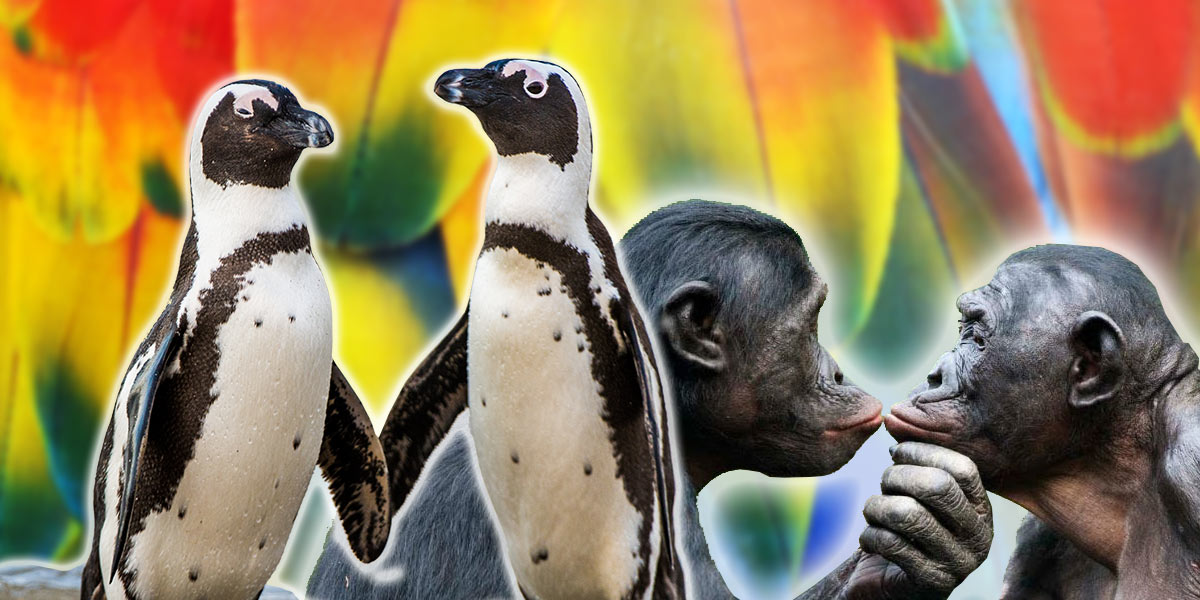Scientists: Same-sex behaviours likely part of all animals’ original evolution

Researchers believe that same-sex behaviours evolved naturally alongside different-sex behaviours among all sexually producing animals.
Previously it had been assumed that homosexual behaviours in the animal world evolved after heterosexuality, but that may not be the case say researchers from the Yale School of Forestry & Environmental Studies.
Same-sex sexual behaviours have been recorded in 1,500 species including monkeys, lions, geese and toads. Evolutionary biologists have questioned why these behaviours have continued to thrive in nature when they seem to offer no opportunity to produce offspring.
In an article published in the journal Nature Ecology & Evolution, the researchers say it is time to reframe the question.
They believe that same-sex and different-sex sexual behaviours are part of the original, ancestral condition in animals and that same-sex behaviours have persisted because they have few — if any — costs and perhaps some important benefits, writes Kevin Dennehy in an overview of the article.
“We propose a shift in our thinking on the sexual behaviours of animals,” says Julia Monk, lead author and F&ES doctoral candidate. “We’re excited to see how relaxing traditional constraints on evolutionary theory of these behaviours will allow for a more complete understanding of the complexity of animal sexual behaviours.”
The scientists argue that at the very least same-sex sexual behaviour persists because there’s no reason for natural selection to weed it out. They also pointed out that some species struggle to differentiate between sexes so they are more likely to mate if they are not too picky and engage in sexual behaviours with partners of any sex.
The researchers admit there is still much to learn on the topic as there has been limited active research into same-sex behaviour among animals. These incidents are often recorded accidentally as heterosexuality has traditionally been assumed “as the norm for society.”
“Given our casual observations suggest that SSB (same-sex behaviour) seems to happen pretty commonly across thousands of species, imagine what we would have learned if we had assumed this was something interesting and not just a rampant accident,” asks Max Lambert, Ph.D., University of California-Berkeley.
The scientists note that they prefer to refer to same-sex or different-sex behaviour rather than homosexuality and heterosexuality as these are terms for human sexual identities that are historically embedded with human-biased moral values and judgments.
“Once you really dig into the research on the behaviour of animals you can’t help but be impressed by the diversity of life and how animals are out there defying our expectations all the time,” Monk says. “And this should lead us to question those expectations.”
Leave a Reply